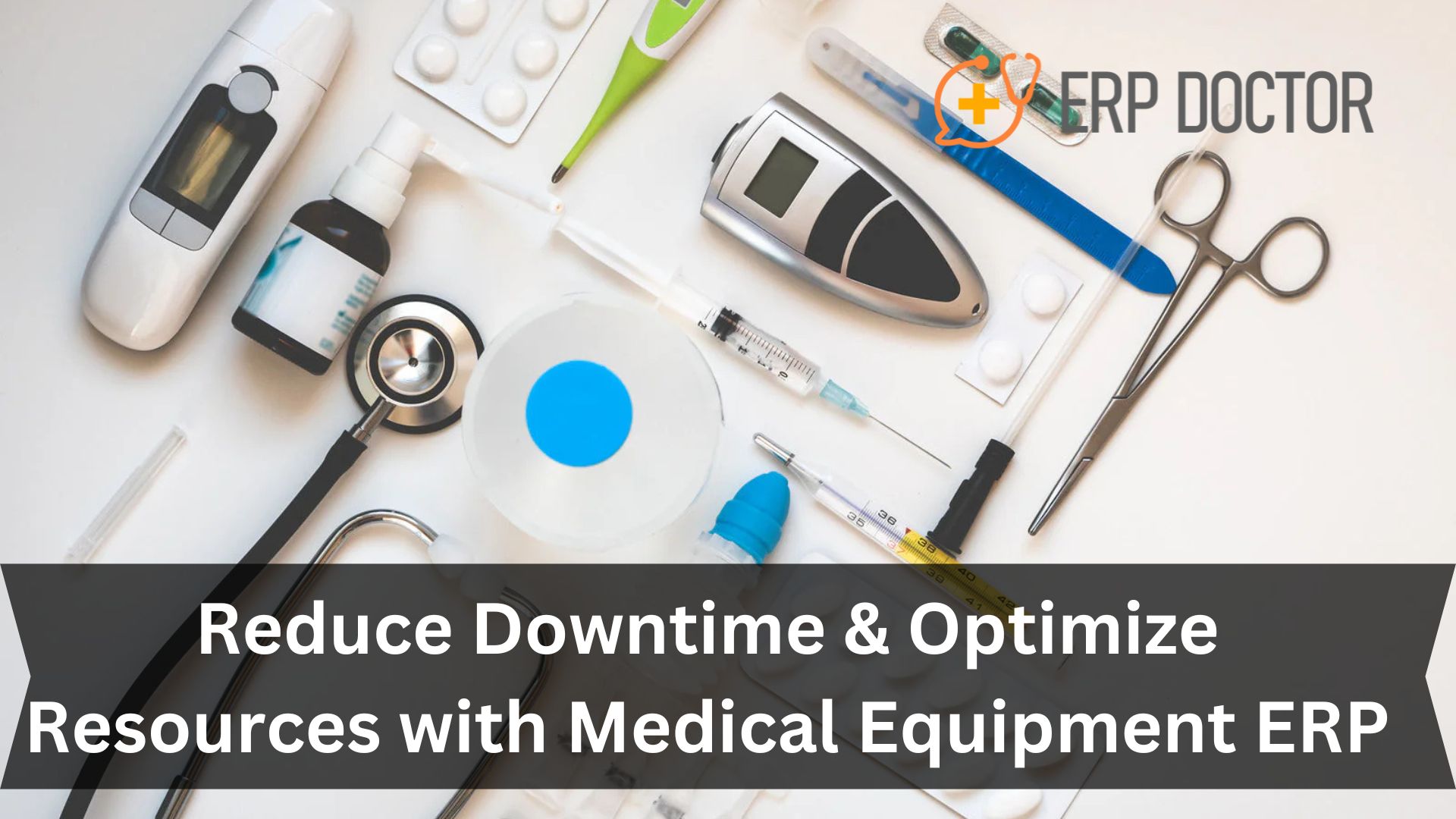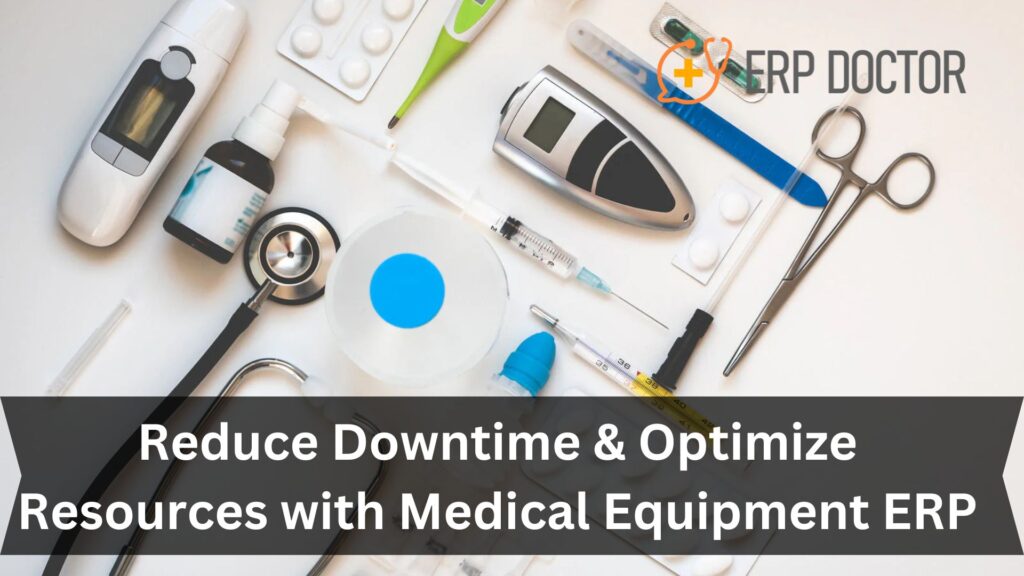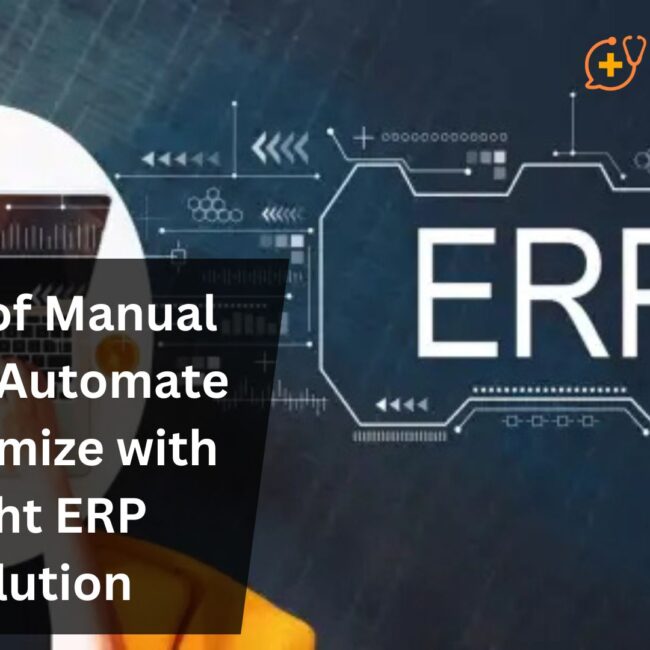
Reduce Downtime & Optimize Resources with Medical Equipment ERP

Why Every Medical Equipment Business Needs ERP for Better Efficiency
In the highly regulated and fast-paced medical equipment industry, managing operations efficiently is crucial to ensure uninterrupted service and compliance with industry standards. ERP for Medical Equipment Industry provides a comprehensive solution to streamline operations, reduce downtime, and optimize resources effectively.
Key Challenges in Medical Equipment Industry
- Regulatory Compliance: Ensuring compliance with strict regulations such as FDA, ISO, and HIPAA.
- Inventory Management: Managing stock levels to avoid shortages and overstocking.
- Equipment Maintenance: Preventing unexpected breakdowns and ensuring timely servicing.
- Supply Chain Coordination: Managing complex supply chains to meet demand efficiently.
- Data Security: Protecting sensitive patient and business data from cyber threats.
How ERP Solutions for Medical Equipment Industry Address These Challenges
Implementing an ERP solution for Medical Equipment Industry helps businesses stay ahead by providing real-time insights, automation, and better control over operations. Some of the key benefits include:
- Improved Operational Efficiency: Automate processes like procurement, inventory tracking, and order management to reduce manual intervention and errors.
- Enhanced Regulatory Compliance: Stay audit-ready with built-in compliance features that track and document regulatory requirements.
- Optimal Resource Allocation: Leverage data analytics to allocate resources efficiently and ensure equipment availability.
- Predictive Maintenance: Utilize IoT-enabled features to predict maintenance needs and prevent costly downtimes.
- Supply Chain Optimization: Gain visibility across the entire supply chain to enhance vendor relationships and reduce lead times.
Steps to Successful ERP Implementation for Medical Equipment Industry
A successful ERP Implementation for Medical Equipment Industry requires a strategic approach to ensure a smooth transition and maximize ROI. Here are key steps:
- Assess Business Needs: Identify pain points and objectives to align the ERP system with your goals.
- Choose the Right ERP Solution: Select an ERP that offers industry-specific features and scalability.
- Data Migration and Integration: Ensure seamless data transfer from existing systems to avoid disruptions.
- User Training: Conduct comprehensive training sessions to enable staff to utilize the ERP efficiently.
- Continuous Monitoring and Improvement: Regularly assess system performance and make necessary optimizations.
Medical Equipment ERP: FAQs
What is an ERP system for the medical equipment industry?
An ERP system is software that helps manage operations, compliance, and resources efficiently.
How does ERP help in reducing downtime?
ERP helps by providing predictive maintenance and real-time monitoring to prevent breakdowns.
Can ERP improve regulatory compliance?
Yes, it tracks and documents compliance requirements, making audits easier.
Is ERP suitable for small medical equipment businesses?
Yes, ERP solutions are scalable and can be customized for businesses of any size.
What features should I look for in an ERP for medical equipment?
Key features include inventory management, compliance tracking, and supply chain optimization.
How does ERP optimize resource allocation?
ERP provides data analytics to ensure efficient use of resources.
What are the benefits of ERP in supply chain management?
It enhances visibility, reduces lead times, and improves vendor coordination.
How long does it take to implement an ERP system?
Implementation time varies based on business size and complexity but typically takes a few months.
What challenges might I face during ERP implementation?
Common challenges include data migration issues and user training.
Is ERP secure for handling sensitive medical data?
Yes, modern ERP systems come with robust security features to protect sensitive information.
Implementing an ERP for Medical Equipment Industry is a game-changer in reducing downtime and optimizing resources. With the right ERP solution, businesses can streamline operations, enhance compliance, and drive profitability. Whether you’re looking to improve equipment maintenance, regulatory adherence, or supply chain efficiency, an ERP system can provide the strategic advantage needed for success.
Ready to optimize your medical equipment operations? Explore the best ERP solutions today!
Warning: Trying to access array offset on value of type null in /home/u231991539/domains/erpdoctor.in/public_html/wp-content/plugins/wpforms/includes/class-frontend.php on line 109







